After settlers establish outpost, Israeli army blocks road to Palestinians
Israeli forces build three-meter dirt mound to cut off Palestinian farmers from their land while violently dispersing protests against new West Bank outpost.
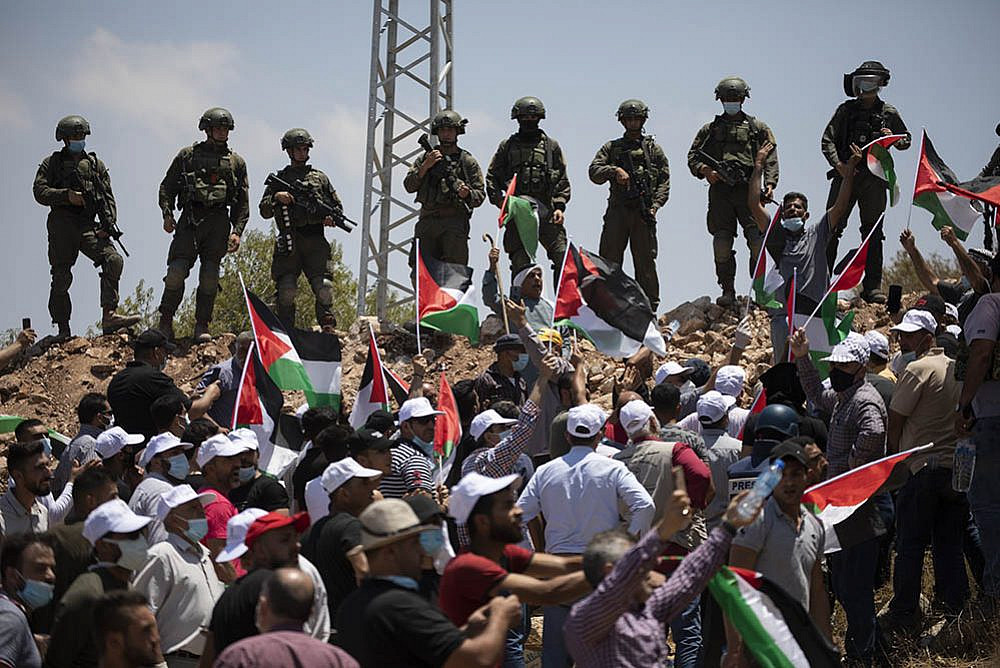 Palestinians protest against the establishment of a new Israeli settlement outpost near the town of Asira a-Shamaliya in the northern West Bank, July 10, 2020. (Oren Ziv/Activestills)
Palestinians protest against the establishment of a new Israeli settlement outpost near the town of Asira a-Shamaliya in the northern West Bank, July 10, 2020. (Oren Ziv/Activestills) ByOren ZivJuly 14, 2020
ByOren ZivJuly 14, 2020
A few days before July 1, the date the Israeli government had initially pledged to begin advancing formal annexation of the occupied West Bank, Israeli settlers established a new outpost on land near the Palestinian town of Asira a-Shamaliya, just north of Nablus. The outpost, which currently consists of two caravans and an animal shed, was set up near agricultural terraces belonging to Palestinian farmers.
Less than two weeks later, on July 7, Israeli bulldozers built a three-meter dirt mound between the outpost and Asira a-Shamaliya, blocking the Palestinian farmers from their land with tractors and other equipment.
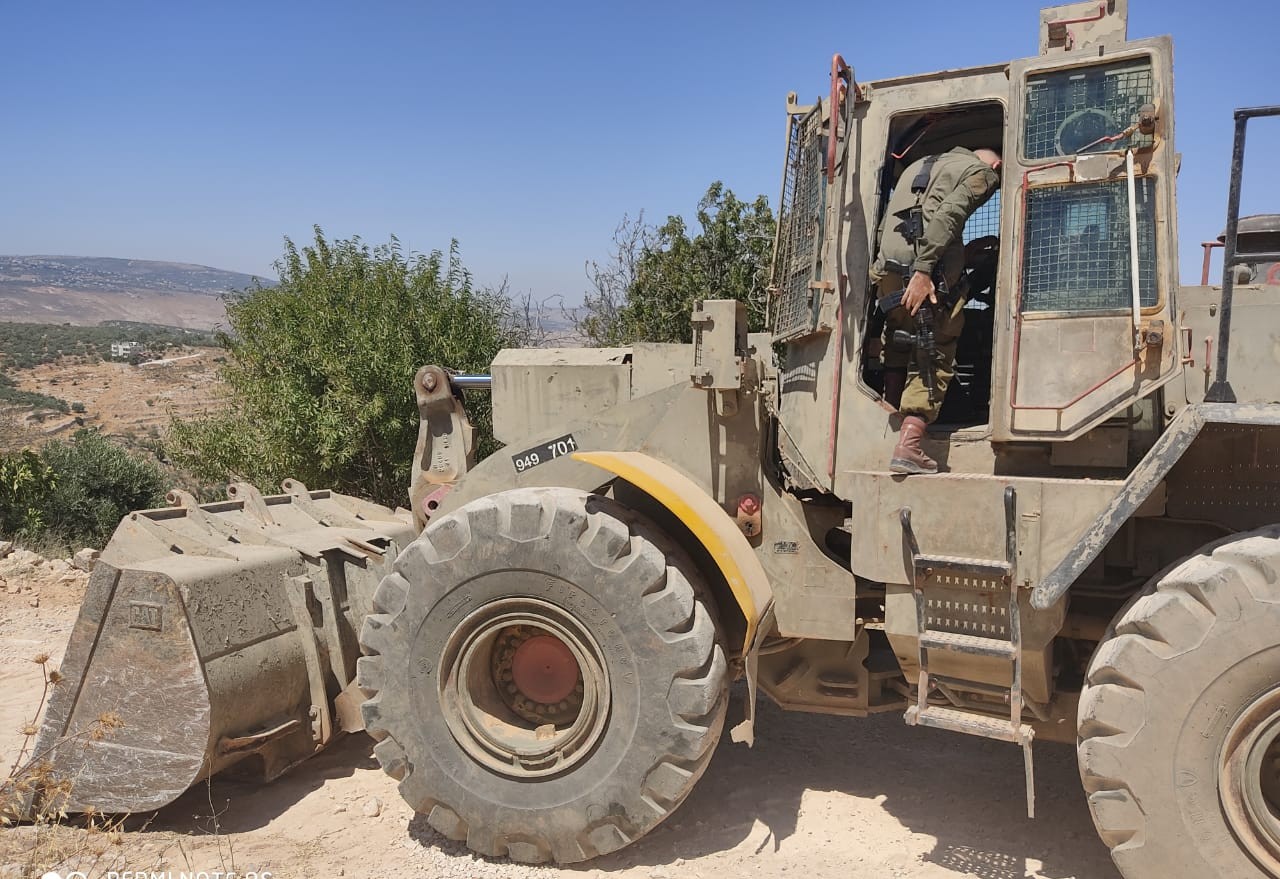
While some West Bank outposts are connected to larger settlements, the new outpost is isolated and instead located near an Israeli military base. Settlers have been accessing the area using the central road connecting Nablus to Jenin, which is used by Palestinians and army vehicles.
Hazem Yussef Yaseen, the mayor of Asira a-Shamaliya, says that the outpost was built on the private land of many Palestinian residents of his town. The settlers “have a few dozen sheep and goats, which they herd in the area around the outpost. They also brought a generator and a water tank,” he said.
Yaseen accuses the Israeli authorities of facilitating the settlers’ actions. “This kind of outpost is not built without the assistance of the Israeli army,” he said, adding that soldiers have been escorting the settlers whenever they travel in and out of the area. So far, he added, the settlers have “not come down from the outpost into the town, but their presence does not allow the farmers to work in their land.”
Local residents and activists from across the West Bank have been organizing weekly demonstrations against the outpost since it appeared on June 26. Last Friday, as hundreds of protesters marched toward the dirt mound separating the outpost from Asira a-Shamaliya, Israeli soldiers and Border Police officers attempted to disperse the demonstration with stun grenades, tear gas, and physical force, wounding a number of protesters.
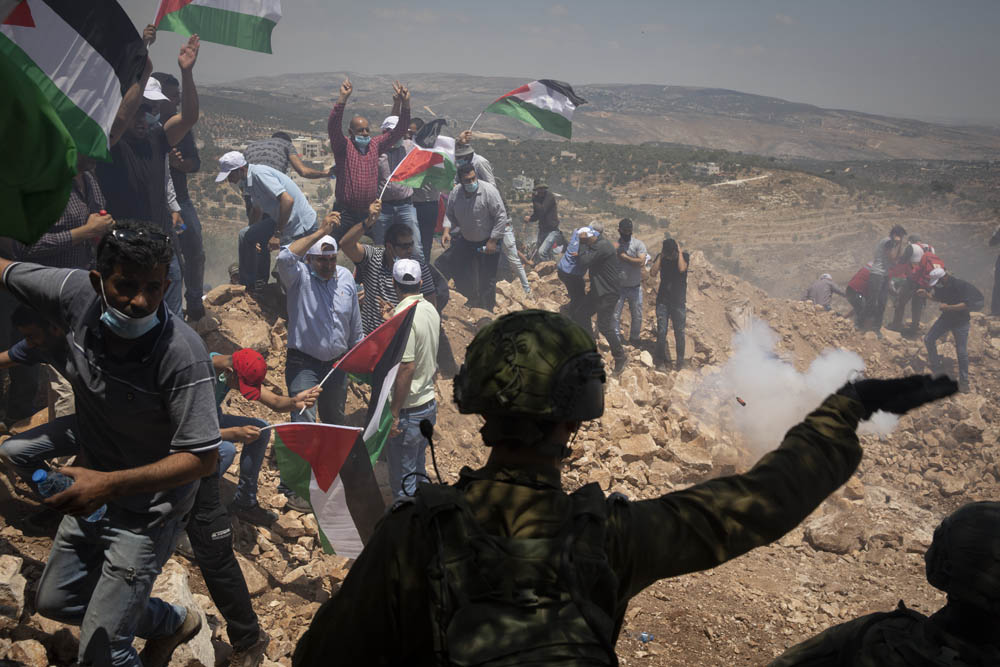
Despite the attempted dispersal, the protestors remained in the area for over two hours and performed Friday prayers. The soldiers remained on top of the mound to prevent them from advancing toward the outpost.
The IDF Spokesperson told +972 that the army had made a “tactical” decision to block off the area with the dirt mound following “ongoing clashes and repeated disturbances in the Mount Ebal area” — the word “clashes” referring to the weekly Palestinian protests. The army further claimed that the mound would be removed soon.
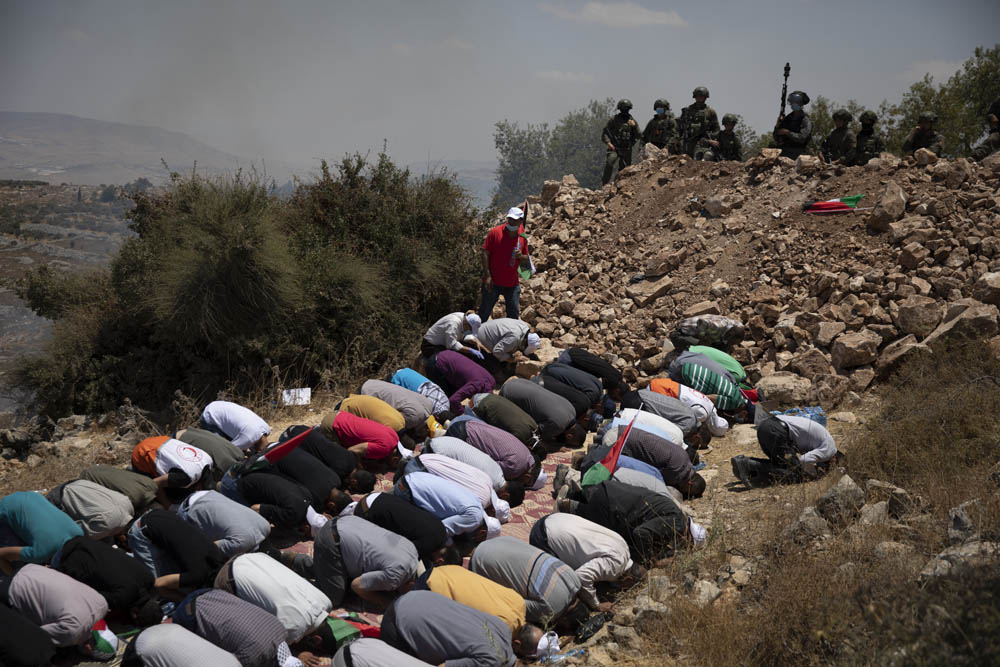
“We came to protest in a nonviolent way, but they [the soldiers] act violently,” said Mahmoud, a resident of the area. “We are unarmed. Why are they shooting tear gas and beating us? They are afraid because justice is on our side.”
The Israeli outpost was built on top of Jabal Aybal, the highest mountain in the northern West Bank. “This mountain overlooks the city of Nablus. It is a strategic location. This is why the settlers want to take it over,” explained Mahmoud.

One of the Palestinian landowners told +972 that shortly after the military occupation of the West Bank began in 1967, the Israeli army confiscated part of their land to build the base, next to which the outpost was built.
Yaseen, the town’s mayor, who was struck in the hand by a tear gas canister during the protest last Friday and required hospitalization, vowed that the demonstrations will continue every Friday “until the new settlement will be dismantled.”
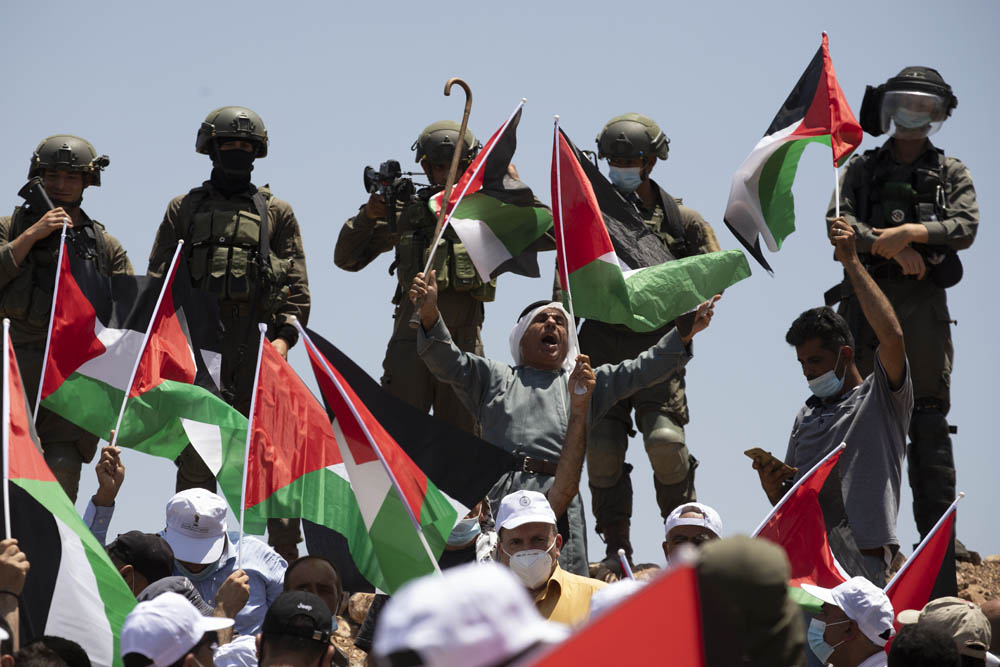
The IDF Spokesperson did not respond to +972’s query about whether the army is helping to connect the outpost to the electricity grid, supplying it with water, or escorting the settlers to and from the outpost.
However, according to Dror Etkes, an expert on Israel’s settlement policies, Israeli authorities are almost always involved with the establishment of West Bank outposts. “This cannot happen without some kind of coordination with the army, when the outpost is near one of the most central army bases in the West Bank,” said Etkes. “There is no chance the army is not involved in one way or another.”
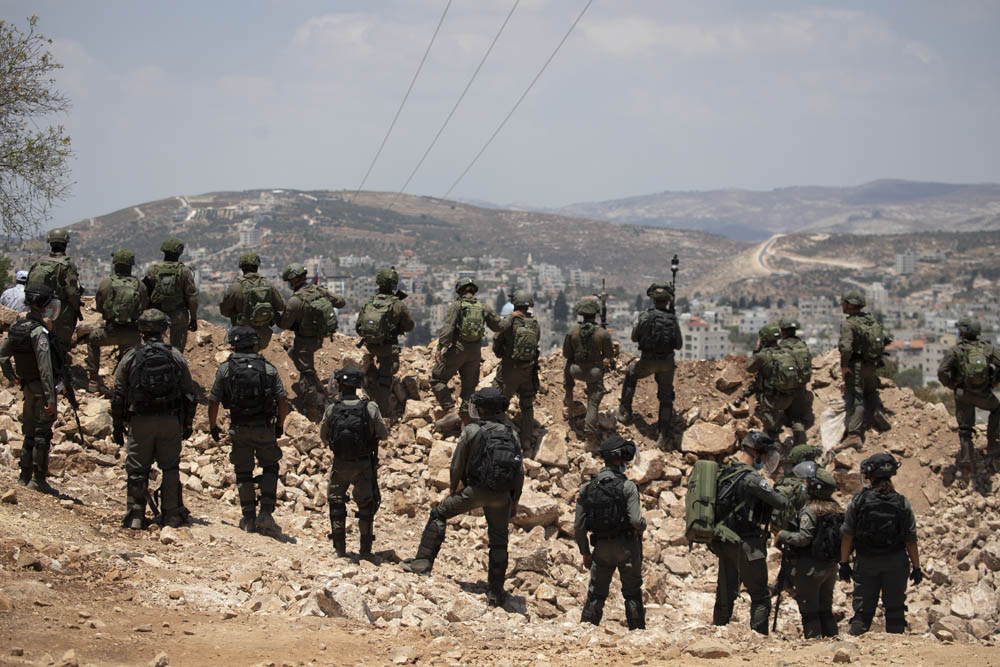
+972 reached out to the Coordinator of Government Activities in the Territories (COGAT), a unit of the Israeli Defense Ministry that oversees the occupation in the West Bank, which said that the case was “known to the Civil Administration. Enforcement in the area will take place in accordance with the authorities and procedures and will be subject to operational priorities and considerations.”

No comments:
Post a Comment
Note: only a member of this blog may post a comment.